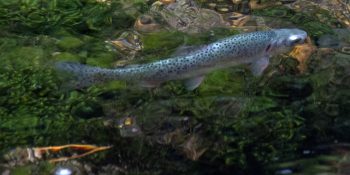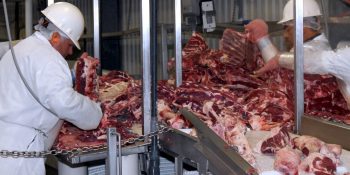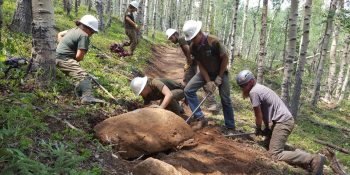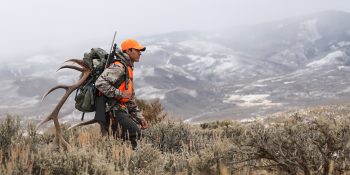STATEWIDE — With Coloradans starting to travel more, the Colorado Department of Transportation (CDOT) and 59 law enforcement agencies across Colorado teamed up for a statewide Click It or Ticket enforcement from July 12-19. A total of 1,695 drivers were cited during the enforcement for either the driver or passengers not wearing a seat belt. This includes 70 drivers who had an improperly restrained child under the age of 15 in their vehicle.
The Click It or Ticket seat belt enforcement is a critical component of CDOT’s Whole System — Whole Safety initiative and the agency’s vision to reduce the number of deaths and injuries on Colorado roadways.
Among the agencies with the highest number of citations statewide was the Loveland Police Department with 173 citations, Jefferson County Sherriff’s Office with 158 citations, and Greeley Police Department with 129 citations. In addition, Colorado State Patrol cited 153 drivers. Results for all counties can be found at https://www.codot.gov/safety/traffic-safety-reporting-portal
Fines for not buckling up start at $65, and parents or caregivers caught with an improperly restrained child can receive a minimum fine of $82.
“Using a seat belt is your best defense in a crash. It’s an easy choice to protect yourself and those in your vehicle,” said CDOT Executive Director Shoshana Lew. “Statistics show there’s a 1 in 33 chance you’ll be in a car crash in a given year and wearing a seat belt is the best way to prevent injury or death.”
In 2019, 196 unbuckled drivers and passengers were killed in crashes in the state, accounting for more than half of Colorado’s 377 total passenger vehicle deaths.
“So many lives could be saved if every person buckled up,” said Col. Matthew Packard, chief of the CSP. “This summer and beyond, we hope Coloradans think about the risk of not wearing a seat belt. I assure you, it’s not worth the gamble. It only takes a second to buckle up, but the impact is immeasurable when considering lives are at stake.”
CDOT’s latest seat belt safety campaign, Common Bond, features a variety of contrasting images to underscore that, even though Coloradans may listen to different music, drive different cars, or root for different teams, a vast majority do wear their seat belts.
As a state, Colorado’s seat belt use rate currently sits at 88% — slightly below the national average of 90%. The Common Bond campaign highlights that while Coloradans hold passionate opinions and may not agree on everything, we can all get behind seat belts.
CDOT’s Common Bond campaign is featured on billboards, posters, bus tails, social media, and radio PSAs into August. To view campaign materials, visit: https://www.dropbox.com/sh/c1bu6ktdw79jkoa/AADcw32hHrh1OHNV26mCSWKga?dl=0
Colorado’s Seat Belt Laws
Adults — Colorado has a secondary enforcement law for adult drivers and front-seat passengers. Drivers can be ticketed for violating the seat belt law if they are stopped for another traffic violation.
Teens — Colorado’s Graduated Drivers Licensing (GDL) law requires all drivers under 18 and their passengers, regardless of their age, to wear seat belts. This is a primary enforcement, meaning teens can be pulled over simply for not wearing a seat belt or having passengers without seat belts.
Children — Colorado’s Child Passenger Safety law is a primary enforcement, meaning the driver can be stopped and ticketed if an officer sees an unrestrained or improperly restrained child under age 16 in the vehicle.
Learn more about Click It or Ticket enforcement and Colorado’s seat belt laws at codot.gov/safety/seatbelts. For Spanish campaign information, visit https://www.codot.gov/safety/seatbelts/cinturones-de-seguridad/
ABOUT CLICK IT OR TICKET
Click It or Ticket is a nationwide campaign from NHTSA. Since Click It or Ticket was introduced in Colorado in 2002, statewide seat belt use has increased from 72% to 88%.
COVID-19
Safe transportation infrastructure is essential for all of us, particularly for emergency first responders and freight drivers as Colorado navigates the COVID-19 pandemic. With that in mind, CDOT maintenance and construction crews follow social distancing and other health safety measures to reduce COVID-19 exposure on the worksite. The Colorado Department of Public Health and Environment announced guidelines for construction activities. The public is urged to join the campaign for #DoingMyPartCO by practicing social distancing and wearing face masks. As traffic returns to normal levels, motorists must drive cautiously and heed the speed limit so all of us can return home safely.
WHOLE SYSTEM. WHOLE SAFETY.
To heighten safety awareness, CDOT recently announced its Whole System — Whole Safety initiative. This project takes a systematic statewide approach to safety combining the benefits of CDOT’s programs that address driving behaviors, our built environment and the organization’s operations. The goal is to improve the safety of Colorado’s transportation network by reducing the rate and severity of crashes and improving the safety of all transportation modes. The program has one simple mission—to get everyone home safely.
ABOUT CDOT
CDOT has approximately 3,000 employees located at its Denver headquarters and in regional offices throughout Colorado, and manages more than 23,000 lane miles of highway and 3,429 bridges. CDOT also manages grant partnerships with a range of other agencies, including metropolitan planning organizations, local governments and airports. It also administers Bustang, the state-owned and operated interregional express service. Governor Polis has charged CDOT to further build on the state’s intermodal mobility options.
SPREAD THE NEWS
COMMENT, Like, Follow & SHARE @I70Scout











